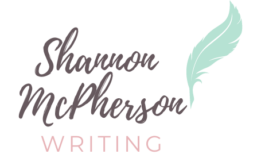Writer’s Block. The ultimate boss enemy of any writer out there. We have all experienced it and if for some reason you haven’t, well then consider yourself very, very lucky.
I feel like there are two types of writer’s block: one, you simply do not know what to write about, and two, you’re in the middle of a writing project and you get stuck.
Let’s start with the first one.
I cannot tell you how many times I’ve had the urge to write but have sat staring at my computer screen or a blank piece of paper without anything coming to mind. That is one of the most frustrating feelings. So, what do you do?
I find that writing prompts can be very helpful in this situation. Doing a quick search on Google or even Pinterest will garner some excellent results, but there are also hundreds of little books devoted to writing prompts as well. I was recently gifted The Severed Moon by Leigh Bardugo, which is a gorgeous little purple journal full of prompts. They range from quotes, to questions, to scenarios on a wide range of topics. The book doesn’t give you a ton of space to write, just enough to get the seed going in your mind with whatever topic you choose to write about. Sometimes just having a small page to write about the topic is enough, but other times the prompt has sparked something in my brain and whatever I wrote got shifted over to my compost pile.
Even more importantly, I felt GOOD after doing a few prompts. I was writing. Writing doesn’t always have to be 5,000 words written in one sitting devoted toward a novel that you’re drafting. Writing can be just simply responding to some prompts to see where it takes you. The important thing is that you’re working your brain and flexing your creative muscles. More things spawn from little bits of writing than from just sitting there, staring at the wall (which I’ve done plenty of).
Now, onto the second form of writer’s block: being stuck in the middle of a project you’ve already started.
First thing, step away. If you’re already stuck, staring at the page or the moment that brought you to a screeching halt isn’t going to help you. Get up, move around, do something else. Clear your mind doing mindless tasks and hopefully, whatever you’re stuck on, will start to work itself out. If it doesn’t, go back to what you’ve written after you’ve taken a break and reread it. Wherever you need to go next in the story may make itself perfectly clear and you can move on with your writing.
But, what if it doesn’t? What if you’re still stuck after rereading your work? There are two things you can do: write what you know happens next or write something you want to write. Writing something that you know happens in the future of the story may be a huge time jump, but seeing where your character goes along the line may spur what will happen before they get to that point, so you can go back in and fill in the blanks.
Writing something you want to write can take a variety of forms. It can be a few paragraphs about another character in the story, maybe even something that has nothing to do with the plot overall, but it’s something. It can help stimulate an idea.
One last final tip is setting yourself a deadline. How many times in school did you write a paper the night before it was due? I swear, some of my best work was done hours before having to submit an essay.
There’s nothing like the threat of a deadline breathing down your neck to get your butt into gear. A tool that can be helpful is a cube timer. You can find the one I bought here. You can set it in increments of 5, 15, 30, or 60 minutes. This can be useful when you’re taking a break; set the timer for 30 minutes while you go do something else, but go right back to your desk when you’re done. Additionally, if you’re doing free writing to help break your writer’s block, you can set it for a certain amount of time to spend on that exercise before reviewing what you wrote and applying it to your project. Of course, you can set a timer on your phone, but I like using something other than my phone as much as I can with day to day stuff. You can also use the timer when you’re writing and tell yourself that you will not check email, look at your phone, or pop onto social media until it buzzes. It has helped me stay really focus by using it in that manner.
I hope these tips for writer’s block were helpful. Please drop a comment below or send me an email with any additional tips you may have! I’m always interested to learn what others use in their practices.
Happy Writing.


‘Writing doesn’t always have to be 5,000 words written in one sitting devoted toward a novel that you’re drafting.”
I think this is my biggest downfall. I am always hesitant to write unless its a BIG idea that is going somewhere novel sized. I always feel like writing just to write or to practice is pointless. But you’re right any of it is writing.